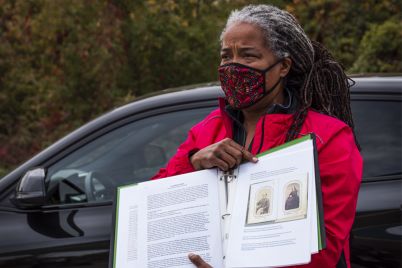
Greg Powell | Washtenaw Voice
Editor’s note: After this story was prepared for publication the Obama administration issued guidance, advising the public school system to allow transgender students to use the bathroom that matches the gender they identify with – in compliance with Title IX.
From North Carolina to Michigan, lawmakers respond to changing views on gender identity
By Brittany Dekorte
Contributor
As The Washtenaw Voice reported in January, Washtenaw Community College converted some of the restrooms across campus into gender-neutral restrooms, to make sure there is at least one in every instructional building. They did this in conjunction with Policy 8028, updated in 2014 by the board of trustees, and to conform to Title IX, which protects transgender students. This change also made it so that students can use the bathroom that fits their gender identity, not limiting trans students to the gender-neutral bathrooms.
More recently in the news, North Carolina has been feeling the heat after passing a so-called “bathroom bill.” House Bill 2, also referred to as HB2, prohibits transgender people from using the bathroom that corresponds with the gender they identify with, instead saying that all people must use the bathroom that corresponds with the gender assigned on their birth certificate.
The law nullifies all local anti-discrimination ordinances across the state, which would have protected LGBTQ+ people from discrimination in public accommodations, such as bathrooms. Bruce Springsteen and Pearl Jam have both canceled concerts in the state, and the NBA is threatening to pull their 2017 All Star game, among many others.
The Center for American Progress reported that North Carolina is at risk of losing more than $568 million through 2018 due to business withdrawal, performance cancellations, and tourism declines. In just the past few weeks, North Carolina has sued the federal Department of Justice, and Attorney General Loretta Lynch has sued North Carolina over HB2. And now, despite all this, the state of Michigan might have it’s own bathroom bill.
“North Carolina’s bill may already be illegal,” said Lynn Rivers, who served as a representative for Michigan’s 13th district and is now a WCC political science instructor. “A federal court has already ruled on a case in Virginia about bathroom discrimination, and North Carolina falls under the same court district.”

Sen. Tom Casperson. Courtesy | senatortomcasperson.com
Introduced by Michigan Republican Sen. Tom Casperson of the 38th District in the Upper Peninsula, this bill is slightly different than the HB2, but is drawing similar criticism. This bill is aimed purely at students, requiring them to only use bathrooms and locker rooms matching their birth sex – unless they have written consent from a parent or guardian.
Even with written consent, though, the students could not use these facilities at any time that other students could be using them, and would be required to use single occupancy or staff restrooms instead.
The idea of this bill is already drawing sharp criticism from the Michigan Board of Education. John C. Austin, the president of board, had this to say: “Legislation that attempts to proscribe gender identity sends a terrible message that Michigan does not welcome nor appreciate all our people, including transgender people.”
Austin noted how, much like in North Carolina, Michigan could become an “inhospitable” place for talent, business, and residents in the state because legislation wouldn’t honor diversity or the rights of every individual.
“It is bad for business and destructive the lives of individuals. For those reasons I am confident Michigan will not follow that course of North Carolina and send this damaging message to the nation,” Austin continued.
“The biggest problem with this bill, is that it would force students to out themselves to their parents,” said Chris Wheeler, a WCC student, trans man and head of OutSpace, WCC’s LGBTQ+ group. “Not all parents are accepting of their children’s transitions, and many kids are fearful that they will be thrown out of the house if they come out.”
Wheeler went on to explain that being forced to use a bathroom that doesn’t match the gender they identify with can be very emotionally and mentally difficult, and causes them a lot of stress.
Katherine Dean, a former WCC student and trans woman, expressed her concern with the thinking behind the bill.
“Many people who, I’ve heard talk about this at least, who are in favor of the bill claim that, when they were in high school, they would have claimed to be trans just to spy on girls. I think that’s just sick. We just want to use the bathroom, to fit in like everyone else,” Dean said.
So what does this mean for the students at WCC?
Many WCC community members, even if they are not directly impacted by the measure, will be impacted in a lot of indirect ways. Some WCC students have siblings, cousins, children, or friends who attend Michigan Public Schools and will be affected by this bill directly. Michigan is already a state with a struggling economy, and if businesses and tourists react in the same way as they have to HB2, it could be devastating.


